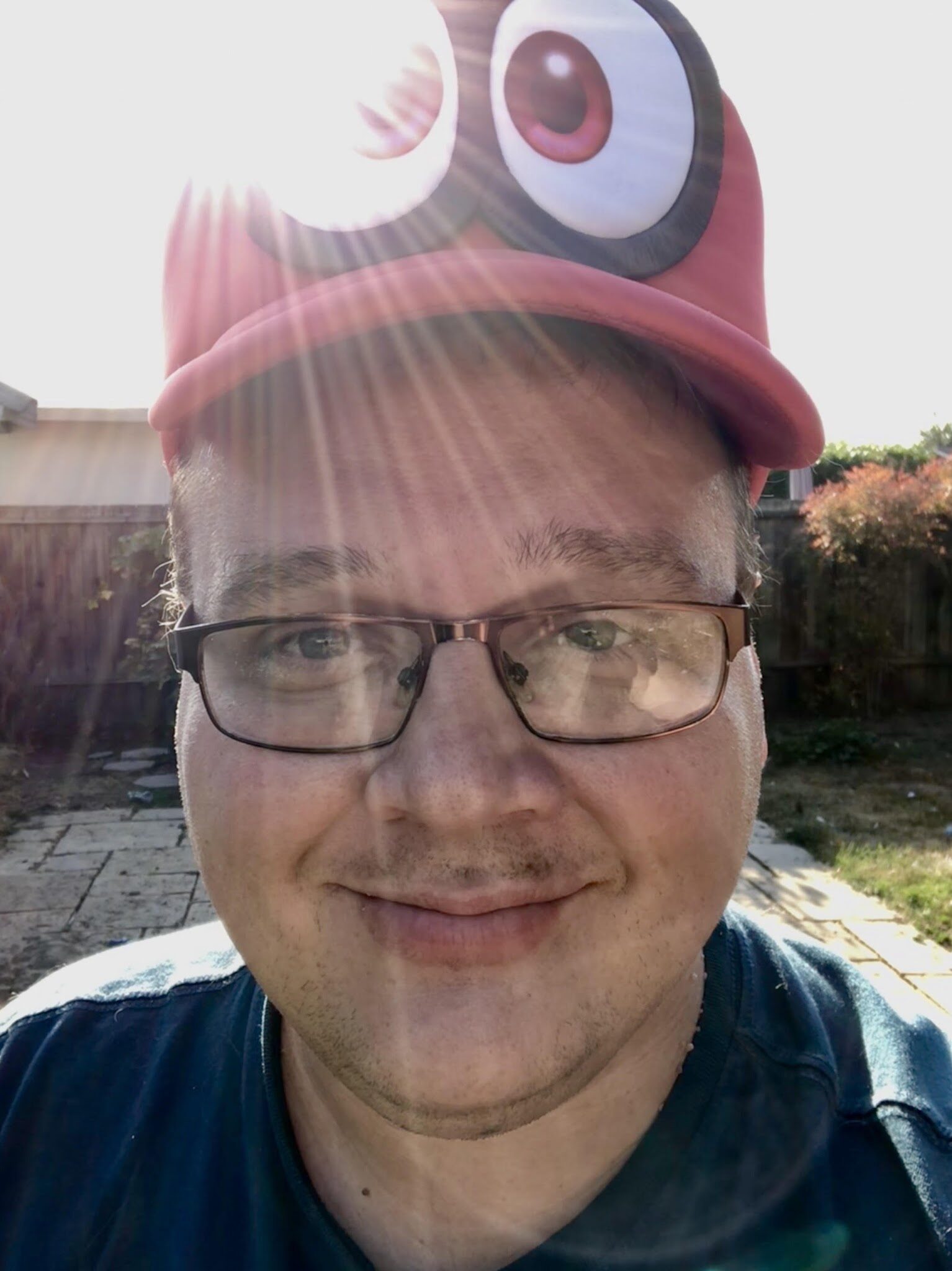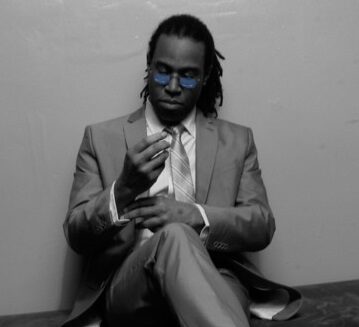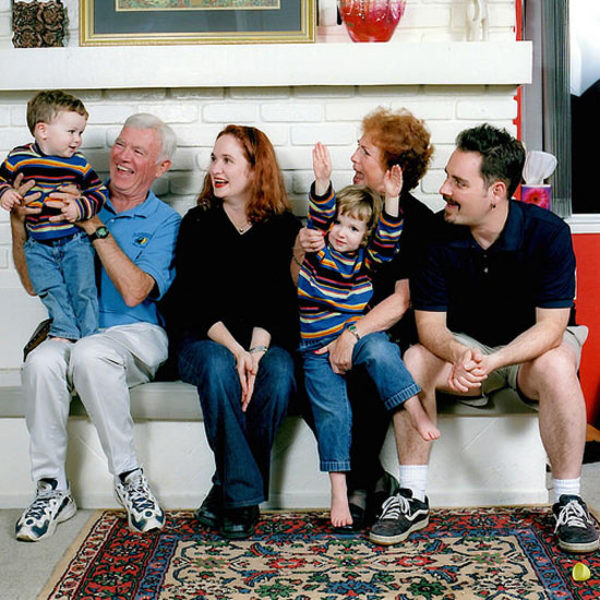My adult autism diagnosis was, it still is, mind boggling to me. Perhaps to those of you who know me. Perhaps not. To have a paradigm shift in self reflection, and in reflection about my personal relationships. My memories now telling me different stories.
Tag: diagnosis
Music producer, actor, and writer Michael “Hot Mike” Buckholtz is also an advocate for autistic people, especially those who, like himself, are part of the Black/POC communities. We recently chatted with Mike via email about his background, some specific challenges (and deadly prejudices) Black autistic people face, and ways he thinks younger autistic people of color can empower themselves. You can follow Mike on Twitter at @OfficialHotMike. Mike Buckholtz [image: Black-and-white photo of Mike Buckholtz: a Black man wearing a silver suit, glasses with blue lenses, and pulled-back locs.] TPGA: Can you tell us a bit about your fabulous career in music and entertainment, and whether being autistic has been a factor? Mike Buckholtz: I started out as a Hip Hop music producer for MC Hammer beginning in 1989. Hammer and I met in 1984 in the U.S. NAVY as barracks roommates. MC made a fantastic statement about that time. (I’ll…
What happens to autistic people in prison? We spoke with Clare Hughes, the Criminal Justice Coordinator for the United Kingdom’s National Autistic Society, about the unique experiences of and considerations for incarcerated autistic people. Clare has been leading on the NAS’s work expanding its accreditation programme to police forces, prisons, and probation services. Note that while some discussed issues are UK-specific, many can be generalized. Photo © Dave Nakayama/Creative Commons license [image: Prison cell bars, with the background cell itself slightly out of focus.] Clare Hughes: We don’t know how many autistic people there are in prison in the UK: information about people diagnosed with autism isn’t collected routinely for the general population, let alone for prisoners, and many will be undiagnosed. HM Young Offender Institution (YOI) and Prison at Feltham diagnose young people in the prison, if they are there long enough. In February 2016, they identified that 4.5% of…
If your child has recently been diagnosed with autism, as my son was in 2003, here’s what I want you to know: Learn from me, don’t be me.
Since I didn’t know I was autistic, I just assumed there was something wrong with me and that I deserved what I got. I learned that intrinsically, I was less than a person, since I didn’t have a framework to tell me otherwise.
Dr. Poinsett aka Godmother Doc and @yayayarndiva [image: photo of a Black woman with short silver-and-black hair.] Dr. Pierrette Mimi Poinsett Over the last year, the Nation of Islam — which does not represent mainstream Islam — has resurrected the fallacious “CDC Whistleblower” argument that vaccines, and the MMR vaccine in particular, is causing autism in Black males. That autism is something to be feared, eradicated. At times the rhetoric has gone so far as to accuse vaccines of killing black and brown children. As both a Black pediatrician and mother of a son with severe mental health and learning disorders, I know that vaccines prevent diseases, save lives, and do not cause autism. Many studies unequivocally show that there is no connection between vaccine components and the development of autism. Autism manifests independently of the vaccine schedule. The reality is that autism is a complex neurodevelopmental condition that likely…
TPGA is observing Autism Acceptance Month by featuring accounts from autistic people about the differences accommodations (or lack thereof) make in their lives. Today, British autistic filmmaker and author Carly Jones outlines her “Top five understandings previous Autistic generations did not have, that the next Autistic generation must have as standard.” Carly Jones www.facebook.com/olley.edwards Carly and her family [image: A laughing white woman with long dark hair, lying on a striped blanket with her three children.] 1) See autism as a real disability Disability is not a dirty word, though it feels that way to some — we are all too often encouraged to see disability as “less than” “inferior,” or “disadvantaged.” I see disability as someone having a different experience of the world than is “typical.” Although Theory of Mind (lack of pre-installed knowledge that other people’s thoughts, wants, and agendas may differ from one’s own) is noted as…
Andrea Michael www.andreamichael.art Django of Cacharel [image: Black-and-white drawing of a dark horse wearing a bridle, with a windblown mane.] I wasn’t prepared for the imposter syndrome that set in after my autism diagnosis. Why? Possibly because, after my diagnosis, I scoured the Internet for autism material, found too many opinions that my version of autism wasn’t “real autism” — and heard more often than not that if I was late diagnosed, that meant I was at the very edge of the diagnosis, just a mild case with no “real” challenges. At the time of this writing, I am in my thirties. I was diagnosed on the autism spectrum three years ago, after seeking answers for troubles that had been ramping up since my childhood. My diagnosis of extreme chronic anxiety as a teen, then one of depression (later extreme chronic depression) in my twenties, while true and correct, were…
Shannon Des Roches Rosa Senior Editor, Thinking Person’s Guide to Autism Hilary Clinton’s campaign published an autism plan yesterday. It’s like nothing I’ve ever seen in an autism-centric policy statement, in a good way. It’s not perfect, because this is politics, and politics are more about compromise and incremental gains than revolutionary change. But throughout the statement, autistic people are treated as human beings with legitimate and sorely unmet needs, and not the usual (infuriating-to-read) millstones, pity magnets, or financial black holes that are tearing the fabric of families, not to mention our nation’s budget, apart. Human beings who deserve to be prioritized. That’s welcome progress, and I would like to see such outlooks become our country’s policy reality. The author and her son [image: selfie of two white people on a twilight hilltop.] As the parent of a beloved autistic teenager, and as a person who adores her autistic…
Shannon Des Roches Rosa www.thinkingautismguide.com We’ve said it before, we’ll say it again: There Is No Autism Epidemic. Not even after US estimates for autism prevalence recently rose to 1 in 45. How do we know there’s no autism epidemic? Two reasons: A comprehensive survey of autism prevalence in Korea estimated a rate of 1 in 39, as reported in 2011. There’s no reason US rates should be much different, so the new numbers are likely portraying reality more accurately, rather than indicating reality is changing. Researchers have been saying for years that autism’s prevalence has mostly risen in response to changes in diagnostic criteria, rather than due to environmental triggers or other causation ideas. The role of changing diagnostic criteria in rising autism rates is particularly relevant right now, given that theme’s prominence in Steve Silberman’s award-winning, current bestseller NeuroTribes. Silberman devotes a sizable section of the book to…








